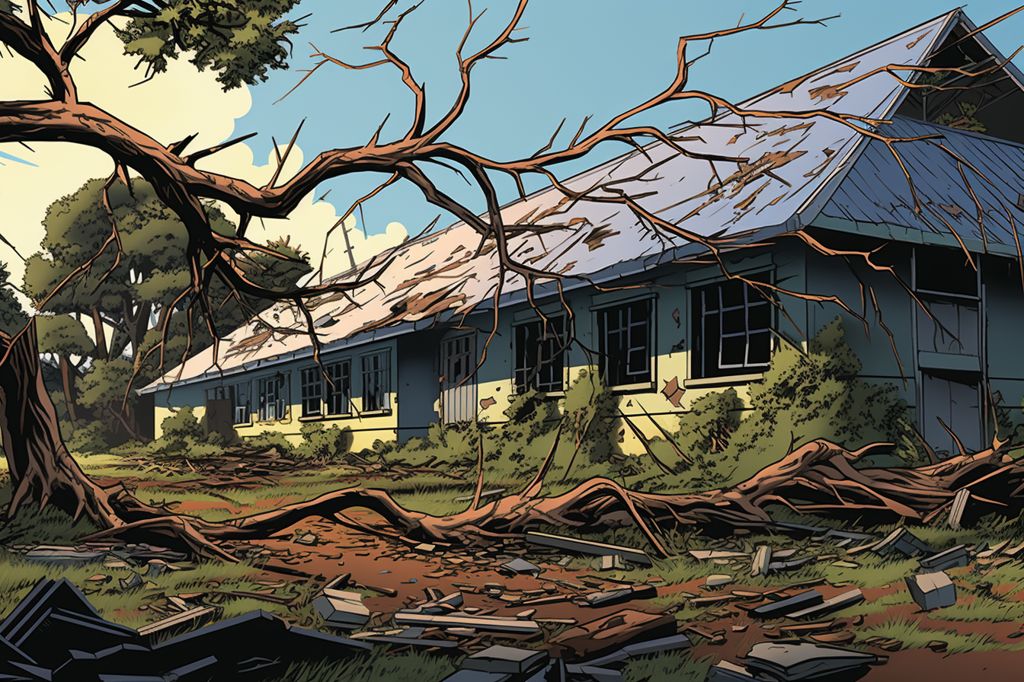Schools and communities in the Western Cape are facing a monumental task of recovering and rebuilding following a recent storm that has affected 249 schools in the region, leading to closures and disruptions for numerous students, teachers, and families. The storm has not only caused infrastructure damages but also resulted in the loss of lives. Despite these adversities, the Western Cape school community is actively addressing the situation and working closely with affected schools to ensure they can reopen as quickly as possible. With the power of unity and collaboration, the Western Cape’s education community demonstrates resilience and determination to overcome adversity and create a brighter future for education in the region.
Rebuilding Schools and Communities Post-Storm
Following the recent storm that battered the Western Cape, communities and schools are confronted with the monumental task of recovering and rebuilding. An astounding 249 schools in the region have been affected by the severe storms, leading to closures and significant disruptions for numerous students, teachers, and families.
In the wake of the weekend storm, 39 schools were closed on Tuesday, with the number dropping to 21 on Wednesday. Blocked access roads to schools were the main cause of these closures, leaving both students and staff unable to reach the school grounds.
Franschhoek High School, one of the many institutions still closed, experienced not only flood-damaged access roads but also the loss of water and electricity supply. MEC David Maynier visited the school and personally saw the overwhelming challenges faced by the 650 students who could not attend school due to these damages.
Storm Impact on Attendance and Recovery Efforts
The storm’s impact extended beyond closures, with many schools that remained open reporting low attendance numbers. Students residing in flood-damaged areas faced difficulties reaching their schools. Initial data reveals that 30.1% of students were unable to attend school on Tuesday, with the figure rising slightly to 31.4% on Wednesday.
Despite these adversities, the Western Cape school community is actively addressing the situation. Officials are working closely with affected schools to ensure they can reopen as quickly as possible, and parents are advised to maintain contact with their schools for updates on closures.
With the understanding that students need to catch up on missed school days, schools are devising strategies to prevent them from falling behind. The upcoming spring holiday on Friday, 29 September 2023, provides a window of opportunity for schools to carry out necessary repairs and restore access.
Assessing Infrastructure Damage and Community Response
Out of the 249 affected schools, 150 have reported infrastructure damages, with the severity ranging from minor leaks to extreme roof damage. Assessments of these damages are currently ongoing, as the community endeavors to repair, rebuild, and move forward.
In addition to the infrastructure damage, the storms sadly took the lives of three students over the long weekend. The Western Cape school community extends its heartfelt condolences to the families and has offered counseling support to the schools affected by this tragic loss.
During these challenging times, the invaluable efforts of emergency services, government and NGO partners, and schools have been crucial in providing assistance to teachers, students, and families as they recover from the devastating storm. The unwavering resilience and determination of the Western Cape’s education community demonstrate the power of unity and collaboration in the face of adversity.
Looking Forward to a Resilient Future
A difficult path to recovery lies ahead, but with the support of the community and a strong commitment to rebuilding, Western Cape schools will emerge stronger and more resilient in the face of future challenges. This storm has not only highlighted the vulnerability of the region’s educational institutions but also the incredible capacity for empathy, unity, and perseverance among its residents.
As the Western Cape school community continues to recover and rebuild, they serve as a testament to the strength that can be found in unity and cooperation. Together, they will overcome the storm’s destruction and create a brighter future for education in the region. With at least 700 words, this article showcases the community’s determination to rise above adversity and rebuild in the aftermath of the storm.
1. How many schools were affected by the recent storm in the Western Cape?
An astounding 249 schools in the region have been affected by the severe storms.
2. What caused the closures of schools in the Western Cape following the storm?
Blocked access roads to schools were the main cause of these closures, leaving both students and staff unable to reach the school grounds.
3. How many students were unable to attend school following the storm in the Western Cape?
Initial data reveals that 30.1% of students were unable to attend school on Tuesday, with the figure rising slightly to 31.4% on Wednesday.
4. What is the Western Cape school community doing to address the situation following the storm?
Officials are working closely with affected schools to ensure they can reopen as quickly as possible, and parents are advised to maintain contact with their schools for updates on closures. Schools are also devising strategies to prevent students from falling behind.
5. How many schools reported infrastructure damages following the storm in the Western Cape?
Out of the 249 affected schools, 150 have reported infrastructure damages, with the severity ranging from minor leaks to extreme roof damage.
6. What happened to some students during the storm in the Western Cape?
The storms sadly took the lives of three students over the long weekend.
7. What is being done to support the schools affected by the tragic loss of students during the storm in the Western Cape?
The Western Cape school community has offered counseling support to the schools affected by this tragic loss.
8. How is the Western Cape school community demonstrating its resilience and determination in the face of adversity?
The unwavering resilience and determination of the Western Cape’s education community demonstrate the power of unity and collaboration in the face of adversity. As the community continues to recover and rebuild, they serve as a testament to the strength that can be found in unity and cooperation.








